Pfizer says its vaccine is 97 per cent effective as UK defends AstraZeneca jab
Several countries suspended the use of AstraZeneca’s vaccine over blood clot fears, as EU has approved its third vaccine.
Coronavirus
Don't miss out on the headlines from Coronavirus. Followed categories will be added to My News.
Several countries suspended the use of AstraZeneca’s vaccine over blood clot fears, prompting Europe’s medical agency to quickly reassure the public there were no known health risks linked to the jab.
The melee over the vaccine came as the world marked one year since the pandemic was officially declared, and threatened to dim hopes that inoculations are the ticket to returning to normal life.
The virus has now killed more than 2.6 million people, subjected billions to restrictions, and left the global economy in tatters — an outcome unimaginable at the outset of the crisis.
A year on, several countries are looking to peel back restrictions put in place after second — or even third — waves and looking to ramp up vaccine rollouts as a way out of the crisis.
But that momentum hit a snag Thursday as Denmark, Norway and Iceland all suspended the use of the Oxford/AstraZeneca jab over fears it could be linked to blood clots.
Italy joined them, banning the vaccine as a precaution, even as its medicines regulator said there was currently no established link with the alleged side-effects.
The European Medicines Agency (EMA) also issued a statement seeking to assuage fears.
“The information available so far indicates that the number of thromboembolic events in vaccinated people is no higher than that seen in the general population,” the EMA told AFP by email.
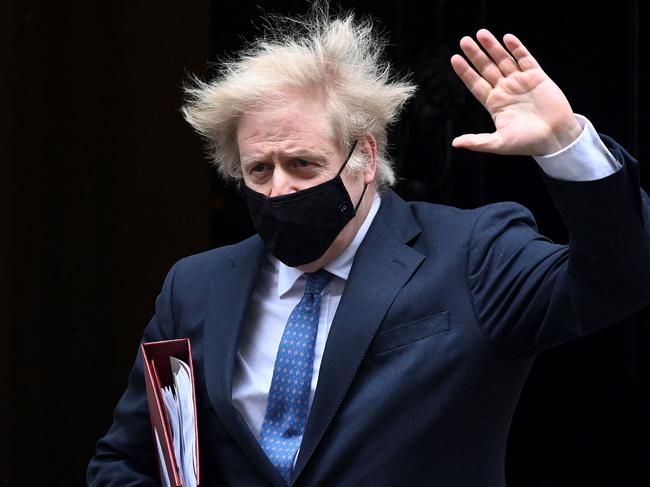
The UK also spoke out, saying the jab was “safe and effective”. “When people are asked to come forward and take it, they should do so in confidence,” British Prime Minister Boris Johnson’s spokesman said, as AstraZeneca shares plunged by more than 2.5 per cent on the stock exchange.
Gavi, which co-leads the Covax program for ensuring vaccines are equitably distributed globally, said it would wait to hear what the World Health Organisation had to say.
“We know that national authorities and the WHO are monitoring the situation closely and we will be following their guidance and recommendation,” a spokeswoman said.
European Union countries are eager to speed up vaccine drives after a slow start left the bloc behind the United States, Israel and Britain — leaders in the race to immunise.
Any further AstraZeneca suspensions could hamper already slow progress, with the EU under pressure to catch up and populations eager to return to a pre-pandemic reality.
“Authorities across the European Union will have another option to combat the pandemic and protect the lives and health of their citizens,” EMA chief Emer Cooke said in a statement.
Since first emerging in China at the end of 2019, the coronavirus has infected nearly 118 million people, with few parts of the globe left untouched.
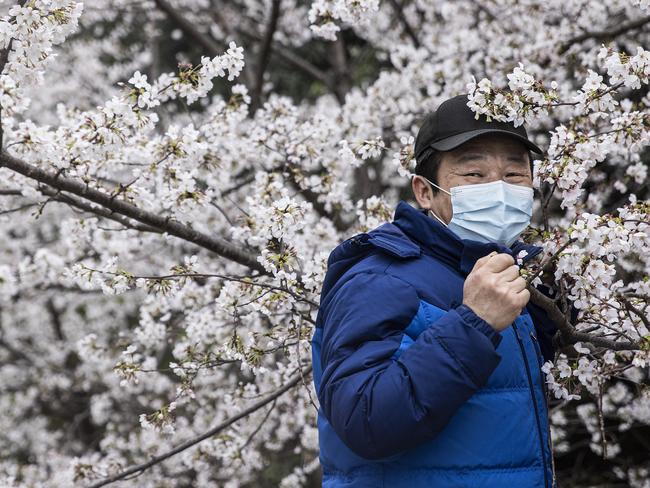
The WHO officially declared COVID-19 a pandemic on March 11 last year as infection numbers were beginning to explode across Asia and Europe.
The only defences to the contagious virus then appeared to be face masks and stopping people from interacting.
Global aviation came to a near-standstill and governments imposed deeply unpopular restrictions, forcing billions of fearful people into some form of lockdown.
“We are on a war footing,” Corinne Krencker, the head of a hospital network in eastern France told AFP on March 11 last year, as patient and death numbers began to surge.
At the same time, governments and scientists launched the race to create vaccines — research and development that would take place at an unprecedented, breakneck pace.
Today, more than 300 million vaccine doses have been administered in 140 countries, according to an AFP tally.
EU APPROVES SINGLE SHOT JOHNSON & JOHNSON JAB
The European Union’s medicines regulator approved the single-shot Johnson & Johnson coronavirus vaccine on Thursday, making it the fourth jab to get the green light for the 27-nation bloc.
The decision offers a boost for the EU’s sluggish vaccination program, even if reports say the first J & J shipments doses may not arrive in European countries until April.
“With this latest positive opinion, authorities across the European Union will have another option to combat the pandemic and protect the lives and health of their citizens,” European Medicines Agency (EMA) chief Emer Cooke said in a statement.
“This is the first vaccine which can be used as a single dose.” US pharma giant J & J filed on February 16 for approval for the vaccine, developed by its Belgian subsidiary Janssen.
The EU has so far approved three vaccines — Pfizer-BioNTech, Moderna and AstraZeneca-Oxford.
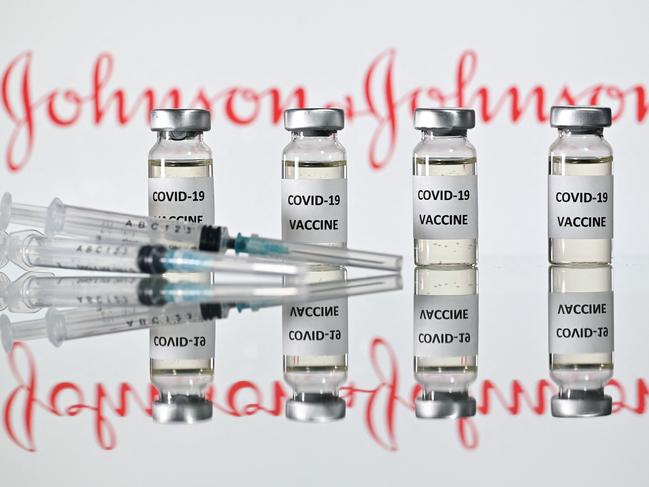
Three other vaccines are under “rolling review” by the Amsterdam-based EMA — Novavax, CureVac and Russia’s Sputnik.
As well as being the first that requires a single injection as opposed to two, the Johnson & Johnson vaccine is easier to store.
The J & J shot however appears less protective than Pfizer and Moderna’s regimes, which both have an efficacy of around 95 per cent against all forms of COVID-19 from the classic coronavirus strain.
The EU has been struggling with a disappointing vaccination rollout that started in January and faltered because of a lack of doses produced by the three suppliers so far.
The head of the EU’s vaccine supply task force, Thierry Breton, said on Tuesday the EU’s “bumpy” vaccine strategy should be augmented by the addition of the Johnson & Johnson jab.
Reported production shortfalls in the United States by Johnson & Johnson would not impact the EU because Brussels had made contingency plans for all vaccines, he said.
Austria, Estonia, Latvia, Lithuania and Luxembourg have separately suspended the use of a particular batch of AstraZeneca vaccines after a 49-year-old nurse died of “severe blood coagulation problems” in Austria following a jab.
BIDEN SIGNS AMERICAN RESCUE PLAN, TIPPED TO BOOST RECOVERY
President Joe Biden will sign a massive $1.9 trillion ($A2.46tn) economic stimulus bill on Thursday and later give a national address urging “hope” on the first anniversary of the start of the coronavirus pandemic.
Mr Biden had been planning to sign the American Rescue Plan on Friday but moved up the ceremony at short notice to 1:30pm (5:30am AEST) Thursday.
The package, passed by Congress earlier this week, dishes out $1,400 ($A1798) payments to most Americans, helps the unemployed, expands public health care and ramps up funds for vaccinations.
Although opposed by all Republican politicians in Congress, the plan has voter approval ratings of around 60 per cent and was hailed by the IMF on Thursday as potentially juicing global economic recovery.
“We see potentially significant positive spillovers in terms of global growth,” an IMF spokesman said.
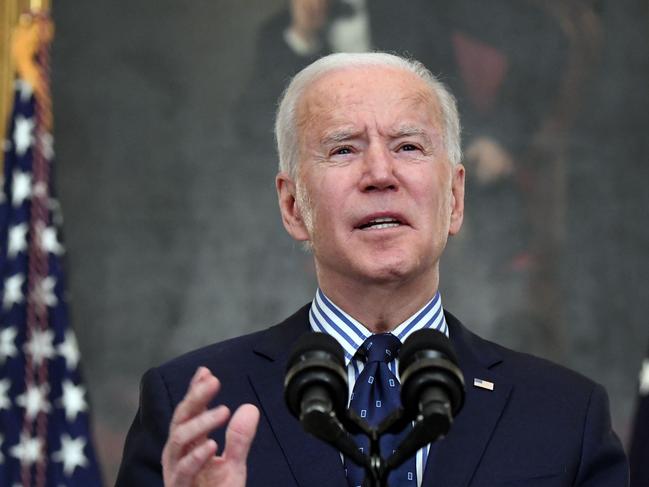
Later Thursday, Mr Biden will deliver his first prime time television address as president.
The 8:00pm (12 noon AEST) speech will mourn the more than half a million Americans who died from COVID-19 and recall the “sacrifices” made, a White House official said.
Mr Biden will cast the struggle against the virus and the ensuing economic fallout as “the greatest operational challenge the country has faced,” said the official.
And he “will lay out the next steps he will take to get the pandemic under control, level with the American people about what is still required to defeat the virus, and provide a hopeful vision of what is possible if we all come together.”
“There is real reason for hope folks, I promise you,” Mr Biden said on Wednesday.
PFIZER JAB 97 PER CENT EFFECTIVE
Pfizer-Biontech’s coronavirus vaccine offers more protection than earlier thought with effectiveness in preventing symptomatic disease reaching 97 per cent, according to real world evidence published Thursday by pharma companies.
Using data from January 17 to March 6 from Israel’s national vaccination campaign, Pfizer-Biontech found that prevention against asymptomatic disease also reached 94 per cent.
An earlier real world study had showed effectiveness at preventing symptomatic disease at 94 per cent and asymptomatic illness at 92 per cent.
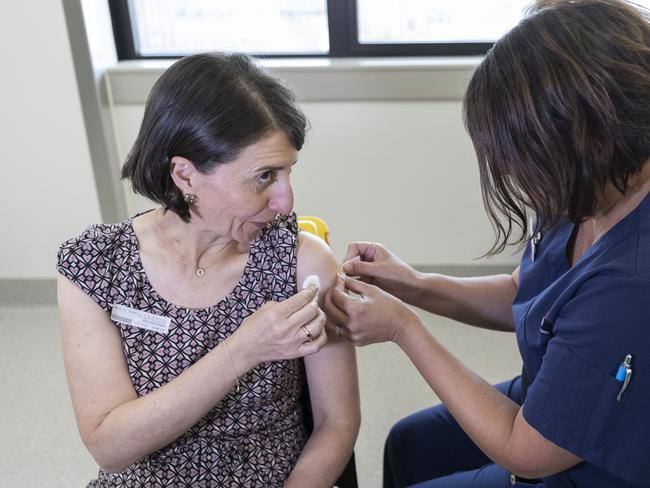
UK DEFENDS ASTRA JAB
The UK government on Thursday defended the Oxford-AstraZeneca COVID-19 vaccine after Denmark suspended the jab’s use, and insisted it would continue with its own rollout.
“We’ve been clear that it’s both safe and effective … and when people are asked to come forward and take it, they should do so in confidence,” Prime Minister Boris Johnson’s official spokesman told reporters.
“And in fact you’re starting to see the results of the vaccine program in terms of the (lower) number of cases we’re seeing across the country, the number of deaths, number of hospitalisations,” he said.
Britain began the world’s first mass vaccination drive against the coronavirus in December, underpinned largely by the Oxford-AstraZeneca jab and another from Pfizer-BioNTech.
Danish health authorities said they were temporarily suspending the use of AstraZeneca’s vaccine after some patients developed blood clots since receiving the jab.
The UK spokesman noted that Denmark had stressed there was no confirmed link between the vaccine and the blood clots.
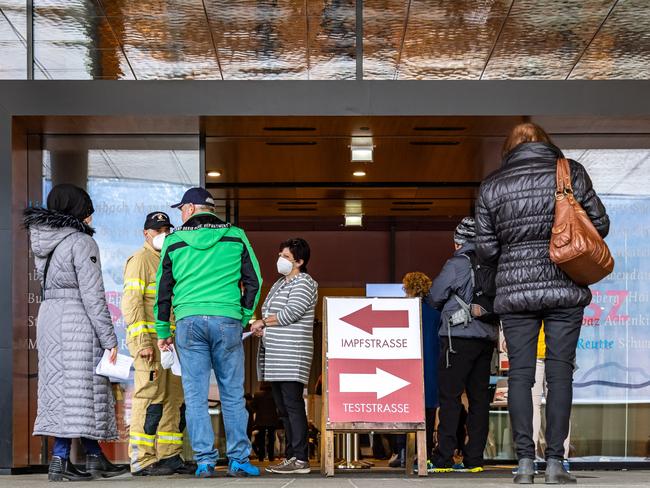
Austria announced on Monday that it had suspended the use of one particular batch of the AstraZeneca vaccines, after a 49-year-old nurse died of “severe blood coagulation problems” days after receiving the shot.
Four other European countries — Estonia, Latvia, Lithlcuania and Luxembourg — have also suspended the use of vaccines from that batch, which was sent to 17 European countries and consisted of one million jabs.
Denmark has however suspended the use of all of its AstraZeneca supply. Asked if the UK government’s medical and scientific advisers were in contact with Denmark, the Downing Street spokesman said it was “regular practice” for experts to exchange information with foreign counterparts.
COVID HAS ‘WROUGHT HAVOC’ ON WOMEN AND GIRLS
Some 12 million women may have lost access to contraception due to pandemic health disruptions, the United Nations sexual and reproductive health agency says, warning that the poorest and most vulnerable were the hardest hit.
UNFPA, based on 115 low-and-middle-income countries, found that a loss of family planning services for around three months had likely led to 1.4 million unintended pregnancies.
“COVID has wrought havoc on the women and girls of the world. But the poorest and the most vulnerable now are seeing the most dire consequences,” UNFPA Executive Director Natalia Kanem told AFP.
She said data suggested “that in wealthier countries, fewer babies are being born, whereas in developing countries – more babies, lack of access to contraceptive services”.
Lockdowns, fears of contagion and travel to health facilities led to fears over access to family planning when the virus began to spread globally last year, while global supply chain disruption has also posed a challenge.
UNFPA said that recent evidence suggested there were concentrated declines in family planning services in April and May, but that many countries were able to restore access after that.
Its new projections used anonymous Google Mobility data for grocery stores and pharmacies as a proxy for access to essential services.
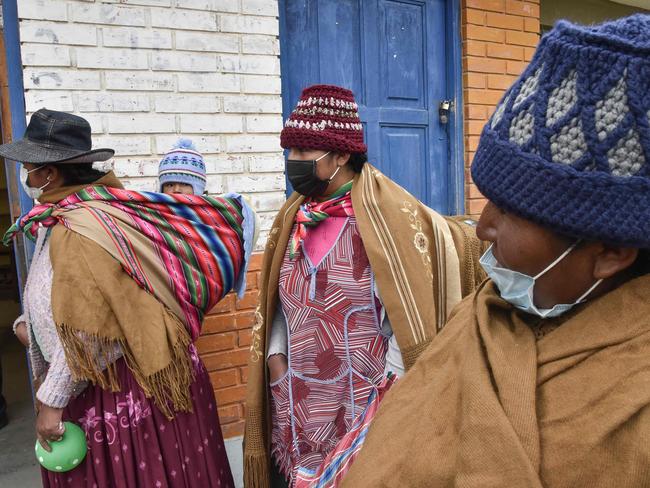
They suggested that 12 million women may have been unable to access family planning because of the pandemic, although its estimates were a broad range from four million to 23 million.
Ms Kanem said the data suggests the international community was able to prevent the worst case scenario, with previous research early in the pandemic suggesting anywhere between 13 and 44 million women could have lost access to contraception.
In its report, UNFPA said its survey data from more than 70 countries found that 41 per cent reported that services by family planning facilities were disrupted, while 56 per cent said they were maintained.
“These are needs that need to be prioritised, it’s not just nice to have this. This is a fundamental part of human dignity,” said Kanem.
She said harmful practices have also increased with the pandemic, including the risk of child marriage, which had “skyrocketed”.
This week the UN children’s organisation UNICEF warned that the effects of the coronavirus pandemic could lead to an additional 10 million child marriages this decade.
DEADLY PIG VIRUS MAY HAVE TRIGGERED COVID-19
A deadly pig disease could have contributed to the COVID-19 outbreak, new evidence shows.
The African swine fever (ASF) swept across China throughout 2018 and 2019, leading to a mass culling of between 40 and 60 per cent of the nation’s primary meat source and severely disrupting supplies.
Following the outbreak, China saw a dramatic rise in pork prices and an increased demand for other meat sources, including wild and exotic animals, that were shipped across the country.
“We’re showing disruption … imagine a wall, it’s just a brick in that wall of evidence. It’s something that we think should be considered in the understanding of what unfolded,” David Robertson, a professor of viral genomics and bioinformatics at Glasgow University reviewing the ASF outbreak told The Guardian.
“It is unlikely we’ll ever know exactly what happened – it does seem likely that we will find a virus close to Sars-CoV-2 from a bat, [or] maybe another species.”
“And then from that, you can start to say, well, how did that get into humans?”
The World Health Organisation is still investigating the origins of the COVID-19 outbreak.
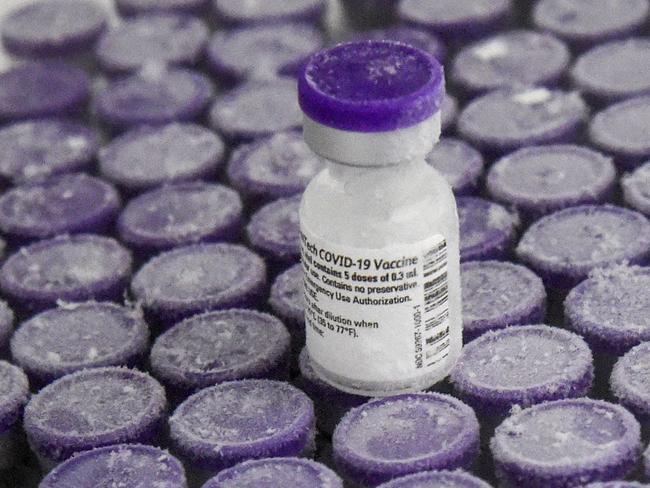
EU TO GET FOUR MILLION EXTRA DOSES FOR ‘HOTSPOTS’
The EU will receive an extra four million BioNTech/Pfizer vaccine doses over the next two weeks that its chief Ursula von der Leyen said on Wednesday would be deployed to coronavirus “hot spots”.
The delivery — over and above already agreed supplies from the vaccine-maker — will go to affected border regions within the bloc to “help ensure or restore free movement of goods and people”, she said in a statement.
The effort comes as the European Commission is trying to persuade at least six EU states to lift virus-related border restrictions deemed by Brussels to be excessive.
It also follows a trip by the leaders of Austria and Denmark to Israel to form a vaccine-producing alliance that exemplified broad criticism of the lack of deliveries so far under the commission’s pre-purchasing scheme.
Von der Leyen said the four million extra BioNTech/Pfizer doses would be delivered “before the end of March” to help member states deploy “their targeted use where they are most needed, in particular in border regions”.
She said they would go to “tackle aggressive variants of the virus and to improve the situation in hot spots”.
Von der Leyen pointed to steep rises in infections and hospitalisations in Austria’s Tyrol region, France’s Nice and Moselle regions, Bolzano in Italy, and parts of Germany’s Bavaria and Saxony regions.
Von der Leyen has said overall vaccine deliveries to the EU will jump to 100 million doses per month in April, May and June. Her goal is to have 70 per cent of adults in the EU fully vaccinated by mid-September.
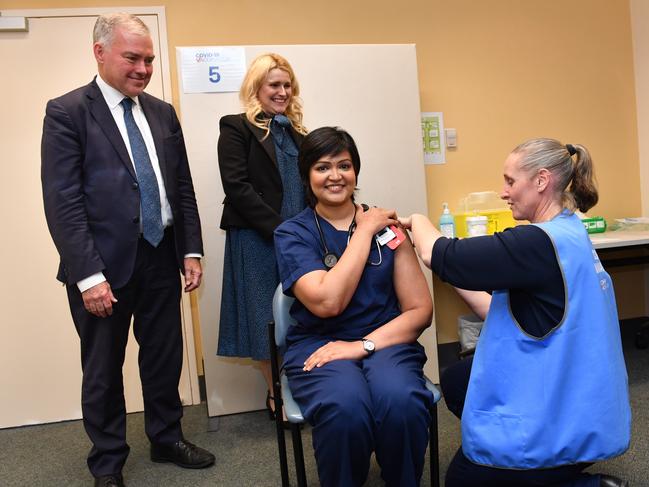
PFIZER JAB WORKS AGAINST VARIANTS
The COVID-19 vaccine from Pfizer Inc. and BioNTech SE has shown a high ability to neutralise mutant coronavirus strains first detected in Brazil, the UK and South Africa, according to a new study.
The research was supported by Pfizer and BioNTech and performed by scientists at the University of Texas Medical Branch in Galveston, Texas.
According to Bloomberg, lab experiments revealed the Pfizer vaccine demonstrated “roughly equivalent” levels of neutralising activity against the Brazil and UK strains compared with a version of the virus from early 2020, predating the variants.
The vaccine showed “robust but lower” activity against the South Africa variant, according to a letter submitted to the New England Journal of Medicine.
The research reported in lab-based and not tested in a real-world environment, however researchers believe the data does give optimism to the chance of vaccines having some impact on COVID-19 variants.
– with Erin Lyons/NewsWire and AFP
Originally published as Pfizer says its vaccine is 97 per cent effective as UK defends AstraZeneca jab
Read related topics:Joe Biden




